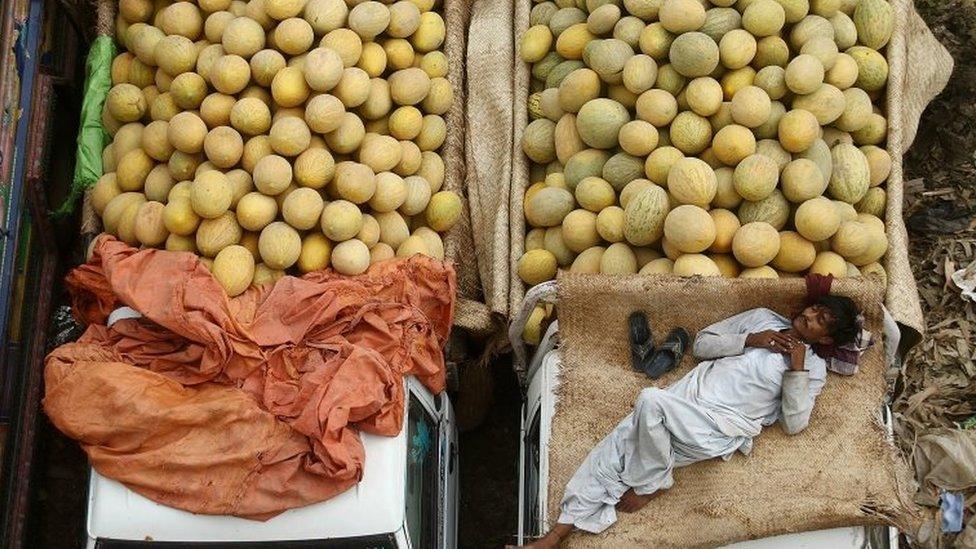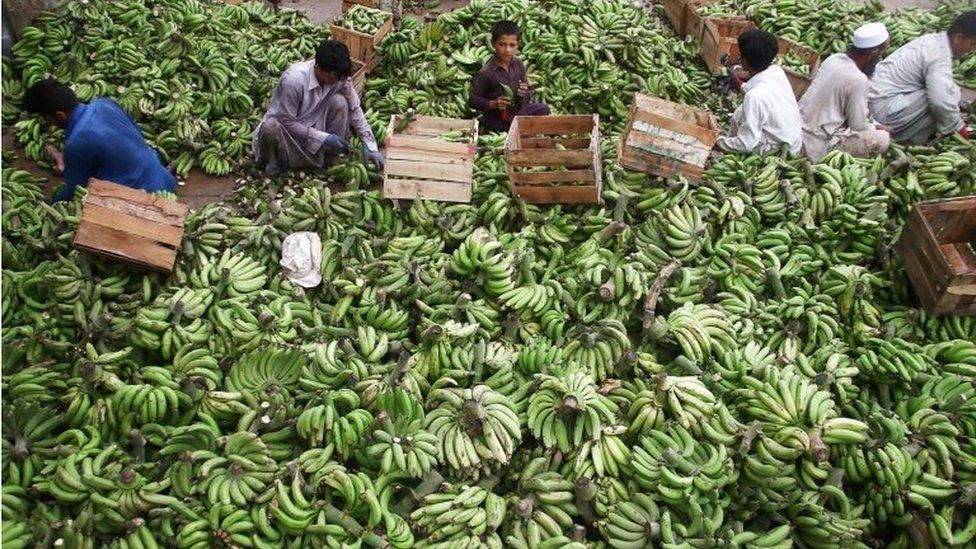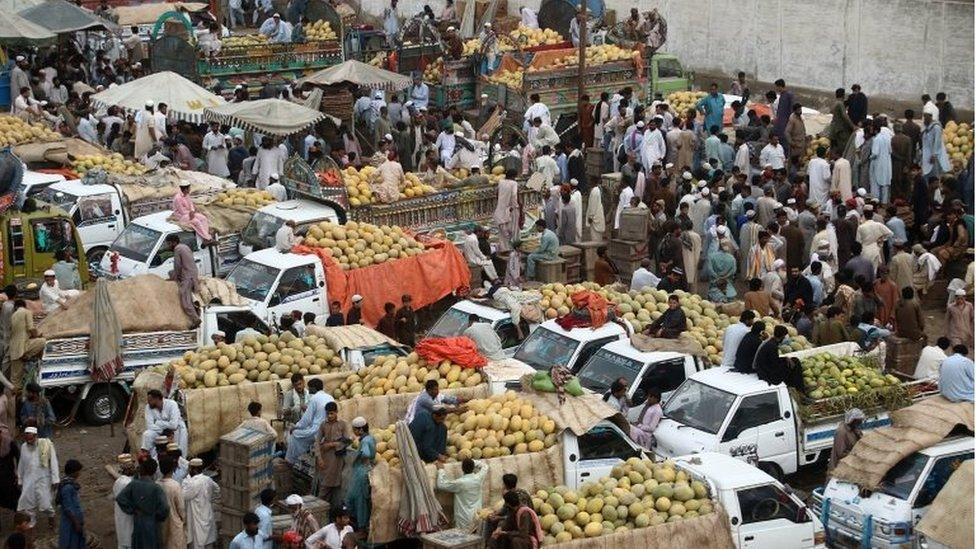Why Ramadan sparked a fruit protest
- Published

Fruit prices shot up with the advent of Ramadan
Social media activists in Pakistan have ended a three-day boycott of fruit aimed at forcing down soaring prices during Ramadan, the Muslim holy month of fasting.
The results were mixed - but the tactic is a new one.
It is thought to be the first time consumers had used social media to highlight food costs in Pakistan in this way.
Who buys fruit?
Fruit retailers in big cities reported a 40-50% fall in turnover during the three-day boycott which ended on Sunday.
They had introduced only marginal price cuts. The impact in smaller cities and towns remained insignificant.
Fruit prices spiral every year during Ramadan when demand goes up.
During Ramadan even low-income households are willing to spend on this "rich man's delicacy" for their evening Iftar (breaking of the fast) meals.
Apples, bananas and also mangoes, when they are in season, are the main items for the dishes of fruit chat (sliced fruit sprinkled with spices).
Why did banana prices drop?
Riaz Rafi, a consumer in Karachi where the boycott was launched, said prices had come down as a result.
"Bananas came down to 100 rupees (74p; 95 cents) per dozen, but they are back to 140 rupees today," he told the BBC.
"We went with the boycott. We stocked up fruit for the first couple of weeks of Ramadan, but we hid it from our children during the boycott days. Everybody went without fruit."

Bananas went down, then up - and there's disagreement over why
But Noor Bahadur, a fruit wholesaler in the Rawalpindi-Islamabad region, didn't think lower prices were to do with the boycott.
"The usual trend for Ramadan is that people stock up for the first one or two weeks, and the buying normally slackens after an initial spike.
"The sweet melon crop is just coming in, so prices are going down. Mango supply will also increase, so the prices will go down in coming days.
"But banana is on the way out, so prices have risen despite the boycott."
How did the protest start?
The boycott began with the circulation of a WhatsApp message last Wednesday, saying the people of Karachi had decided to stop buying fruit for three days so as to force sellers to lower prices.
The campaign soon spilled over onto Facebook and Twitter, with hundreds of social media users offering comments for or against the boycott.
Some expressed fear that the boycott would hit handcart vendors - retailers at the bottom of the distribution chain who have low turnover and incomes not much better than those of day labourers.
"Are people seriously boycotting fruit wallas in #pakistan? Have we all gone crazy? These men barely make money to make ends meet! #Ramzan," tweeted award-winning film maker Sharmeen Obaid Chinnoy soon after the move was announced.
They said prices were fixed by the middlemen - wholesalers and large retailers - who could circumvent officially fixed prices and were also well cushioned against short-term losses.
Who's to blame?
One Islamabad retailer, Khalid Nadeem, said the boycott had not had much impact in the capital.
"Boycotting fruit at the consumer end is not going to work. The beneficiaries are the traders who pick up fruit from the orchard, the commission agent where the traders bring that fruit, and wholesalers who bid at the commission agent's auction houses.

Fruit retailers say they expect a fall in turnover once Ramadan begins
"They work in league with each other and fix prices ahead of Ramadan. When Ramadan was about to begin, we paid 1,600 rupees for a carton of fruit we had been buying until then for 600 rupees only.
He said prices would drop only when retailers boycotted the wholesalers.
"And a three-day boycott is not enough. They can store fruit for this period without affecting the quality. The boycott must be a week long, if not more."
Even the middlemen cannot hoard perishable goods beyond a few days, given the soaring temperatures.
Designer brands next?
But many Pakistanis also wondered if the protest should stop at fruit.
They suggested people should also boycott the expensive brands of clothes and shoes that they buy for the Eid festival at the end of Ramadan.